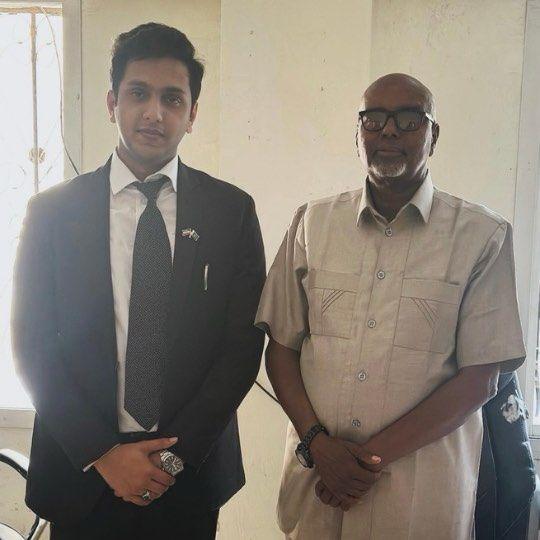By Hamdah Noor (Pakistan)
In the 21st Century, the fruits of human efforts since existence are in front of us. Naturally, humans try to improve their lives and invent things which will create ease, but this natural being has always failed to protect and give basic rights to women – right to life, choice, movement, expression, and education. The world has failed to serve her with these basic human rights, and this failure is more evident in the case of Afghanistan where women are considered an inferior being and have been marginalized. This article focuses on the women’s struggles under the Taliban Rule.
To understand the current battles faced by Afghan Women, it is necessary to acknowledge the historical context of women’s rights in Afghanistan and political shifts that have shaped their lives. In 1919 women got the right to vote earlier than American women, and later on the right to education as well as working-permits. Afghanistan was asserting and was considered a progressive state relative to other countries.
However, the cold war era and later invasion of the Soviet Union brought instability to the state which resulted in regression of women’s rights. In 1996, Taliban held the power, and restrained women from any public or social appearance taking away their right to education, work, expression, movement and speech. In 2001, the U.S. invasion of Afghanistan created chaos for civilians. Although women saw improvements, gaining the right to work, move, and express themselves in public, it is important to remember that Afghanistan was still a war zone, and no one experienced full freedom. After two decades of conflict and limited progression, Doha Accords 2020 was signed which reinstated the authoritarian rule of Taliban.
Afghan women are facing significant obstacles to access education. Since the revival of Taliban rule, the dictators are trying to marginalize women in every possible way and are infringing their rights. First, they restricted women and girls to go to universities; subsequently, more limitations were entrenched and the access to education was banned and only young girls who haven’t reached puberty can seek education, and even the, only to primary level.
The restrictions on Afghan women extend beyond education to include their right to movement. The 35-article law published in the official gazette on July 31 establishes prohibitions already generally known in the Islamic Emirate of Afghanistan. The Vice laws have restricted women from going out of their homes without their chaperone, who must be a “Mahram”—generally a husband, father, brother, son, or uncle.
Women are obliged to dress up in a specific way, covering themselves from head to toe, a burqa is preferred to be used to cover themselves. Afghan leaders will not only order how a woman should dress up but they will also regulate how she will use her voice, loud or low, as in the vice law the government has regulated women that they must not be heard in public or preferably they should not speak. In an article by Dawn News, it stated: “Day by day, they are trying to erase women from society,” said a 37-year-old housewife in Kabul.
The law has also defined the area for free movement for women which is approximately 78 kms from their residential area. Men are also ordered to dress according to religious dress code instead of western attire but are not regulated as strictly as women.
Women are being used as a tool for the “economic venture” of the country. Afghan laws have abolished beauty parlors as considered illegitimate under the Taliban’s own rigid interpretation of Sharia Law because of the services that are being offered, for instance, eyebrow shaping, use of makeup, and use of wigs. This has resulted in the forceful closure of 60,000 women-owned businesses, according to UN reports.
Beauty salons were one of the main sources of income for many women. Not only beauty salons, but women are also not allowed to work in any public sector; they are preferred to stay home, which has made it more difficult for already starving civilians to deal with poverty. The United Nations and Amnesty International have warned Afghanistan and pushed it to give women freedom, and these warnings were affirmed by their refusal to give aid and funding to Afghanistan. To cater to this issue, Afghan leaders are using women and reflecting that they “acknowledge the issues of women, but it is their local issue, and it would be better for them to decide it locally”. It would be no shock if Afghan leaders give some relief to women for the sake of the economic stability of the country, as more than seventy percent of the population is under poverty.
Moreover, Afghan women are dealing with drastic mental health issues. Due to lack of movement, work, and social life they are facing depression and anxiety. Their say in their own homes has been devalued as a result of authoritarian rule. According to a UN report, 8 percent of survey respondents knew at least one woman or girl who had attempted suicide since the Taliban’s takeover in August 2021.
Fundamental rights of education, movement and expression are of less severity as compared to the issue of child bearing age being dropped to 15, early marriages have also exceeded as compared to prior age of 18 to 21. All of these factors and reasons culminate in the devastations of women’s mental health which costs them their own innocent lives.
Despite all these hardships, Afghan women are still fighting for their rights and protesting against the atrocities of the autocrats. They are dealt harshly but they are still finding ways to educate themselves and earn through secret school and online platforms, respectively.
To conclude, Afghan women are living the worst lives in this post-modernist world. International organizations are putting pressure on Afghan authorities to deal with this sensitive and important matter, but they are not serious about it and have dealt with it very vaguely because if America, China, and other organizations really wanted to solve this issue, there would have been foreseeable changes. The Taliban government, which has imposed restrictions on women since seizing power in 2021 that the UN has described as “gender apartheid” must be held accountable internationally, and there must be effective measures to help Afghan women because economic sanctions alone will not resolve this issue.






This Post Has 3 Comments
Well written and comprehensive 👏
You addressed this well, Afghanistan despite being a muslim state is still not a safe place for women,we need an awareness in Afghanistan for women protection and affordable services for them Great Job
Noodlemagazine I like the efforts you have put in this, regards for all the great content.